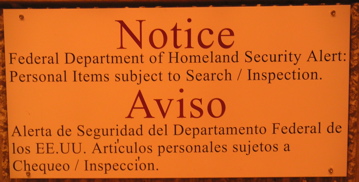For years science-fiction author David Brin has been preaching that privacy as we know it is essentially dead, and rather than mourn our loss of shadow we should embrace the light — and make sure it shines in the bedrooms of power as much as it shines in our own. The Cameras Are Coming! has been his battle cry.
I remember hearing Brin speak at the Media Lab sometime in the late 90s and thinking he was completely off the mark if he thought ubiquitous lack of privacy was anything but trouble — I saw it as giving an expert marksman (powerful individuals, companies and governments) and someone who has never held a gun before (us peons) the same high-end rifle and saying “there you go, now you’re both equal.”
I’ve not gone completely over to Brin’s position, but events in the intervening years have brought me a little closer. First, I’ve seen no sign of privacy erosion even slowing down and every sign that information wants to be free and unfettered is becoming a new physical law for the 21st century. (In the spirit of Free as in beer and Free as in freedom, this would be the Free as in virus point of view.) The same forces that erode top-down power and barriers to free expression are the forces that erode our privacy — I can’t think one is inevitable without accepting the other as well. Second, things like the Abu Grahab scandal give me at least a little hope that light will occasionally leak into even the more protected dens, and that we peons are slowly learning how to shoot. I’m not totally convinced by any stretch (Abu Grahab, I’ll point out, has so far only lead to punishment of low-level participants), but it’s something.
I came in halfway through Brin’s talk in the opening debate at CFP, but I did note one quote I especially liked (slightly paraphrased here):
Give the watchdog better glasses and more freedom, then yank the choke chain to make sure it remembers that it’s a dog and not a wolf.
The fundamental question for every free society is how to insure we keep a hold of that choke chain. Shining light in the bedrooms of power is one part of the answer I think, but it’s not enough.
I’ve some thoughts of what else is needed, but they involve questions about free will — and anyone who’s heard me rant in person on the topic knows I’d never get to sleep if I started down that path tonight…
(For some related reading take a look at Stafanos’ response to my post about privacy that got me thinking about Brin again.)

